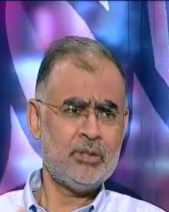Nadeem M Qureshi
The tragedy of politics in Pakistan is that the same people, despite their dismal performance, get elected again and again. This is especially true in the rural areas of the country. And since this is where where the majority of the population live it is people elected from these areas who end up governing the country. So how is it that the same people – mainly feudal landlords – come to be elected time and again? The reasons are many and complicated. But a single factor stands clearly above all others. This has to do with the control that these fuedals exercise over the local police stations – called thana in the vernacular. Two aspects of this control need to be understood. First, how is it used? And, second, how is it maintained and perpetuated?
But before addressing these two issues, it is important to understand the role of the thana in these impoverished rural communities. It is no exaggeration to state that rural life revolves around the thana. It is the only forum where local people can seek relief from oppression and tyranny. The thana is the ultimate arbiter not only of crimes ranging from petty theft, to murder to land grabbing but also of disputes between individuals or groups. The situation is exacerbated because all the parties involved – the victims, the criminals, and the disputants are poor and illiterate and have no recourse to legal help. Hence decisions can be arbitrary, subject to external influence and difficult to challenge.
And since it is the feudal landlord who controls the thana he becomes the defacto ‘ruler’ of the community. How does he use his power? In many ways: If a cow is stolen from a poor farmer he will not be able to register a First Information Report (FIR) with the police until the local landlord instructs the thana to do so. And since an FIR is the document that sets the process of criminal justice in motion no police investigation can begin without it. Similarly if the local landlord is unhappy with someone, he instructs the thana to issue a concocted FIR which promptly leads to the arrest and possible torture of the hapless victim. Many landlords provide refuge and succour to wanted criminals. These criminals steal from the community – animals, money, jewellery for the purpose of providing income to the landlord. They are also used as private goons to beat and threaten peasants who are otherwise not intimidated. The thana is fully aware of these activities and the identities of the criminals. But they cannot be touched because they are in the protection of the landlord.
Put all this together and a sordid picture of terror and oppression emerges. Some 30 years after the fall of the Iron Curtain vast swathes of Pakistan are ruled by fear of arbitary arrest, torture and death. It is as though time has stood still.
And what is it that gives the feudal landlord his power over the thana? The answer to this reveals the shocking complicity of the main political parties in promoting this abomination. All legal authority vests with the Station House Office (SHO) of the thana. He does not need to take instructions or even give the time of day to a landlord. But any SHO who dares not accept the complete authority of the landlord is promptly transferred out of the area or penalized in other ways. And since the authority to do this vests with the provincial chief minister such instructions can only be issued from his office. Frequently local landlords unhappy with their SHO travel to the provincial capital and wait hours outside the chief minister’s office to have the transfer instructions processed.
So the root of this evil rests squarely on the shoulders of the provincial governments who are responsible for adminstering the police. Both the main political parties in Pakistan today – the PPP and the PML(N) – rule over the provinces. And both, in their public pronouncements, loudly and repeatedly claim to uphold democracy and human rights. Yet they shamelessy continue, at the same time, to ravish and violate an already downtrodden and broken people.
About the author: Nadeem M Qureshi is the Chairman Mustaqbil Pakistan. He can be reached at nmq@mustaqbilpakistan.pk
More about Mustaqbil Pakistan can be found at their website: http://mustaqbilpakistan.pk
